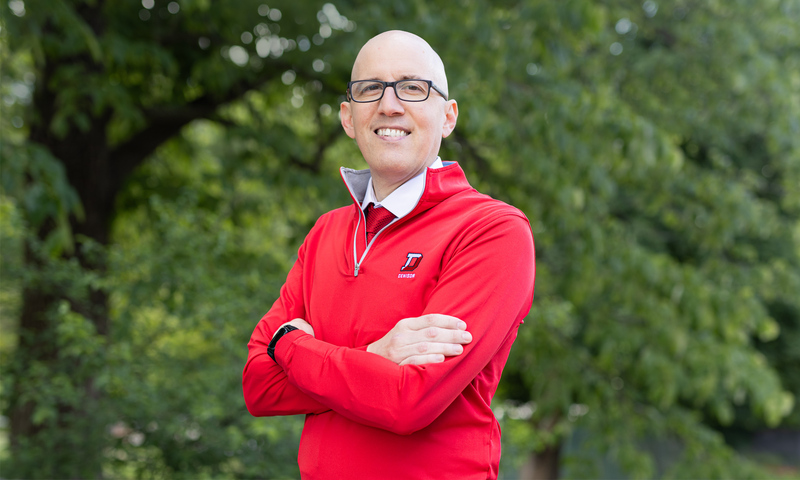Denison's narrative journalism concentration, launched in the fall of 2016, deepens learning and opens new careers for the college's students.
Every day the media is filled with articles that are rooted in fields as diverse as physics and biology, psychology and political science. Narrative journalism is the door that opens these worlds to popular audiences as well as those who are more informed.
Prose that combines literary attention to storytelling with sound, fact-based research is the basis for good narrative journalism. Students from all majors are welcome to take this concentration, which is rooted in good writing skills and which deepens students' abilities to communicate complex knowledge and ideas.
“At the core of Denison’s liberal arts mission is the goal of developing critical thinkers and discerning moral agents. This concentration aims to teach students to translate complex disciplinary thinking into engaging stories written for the general public,” said Denison President Adam Weinberg. “It is firmly grounded in the liberal arts, bringing together existing courses in narrative writing and research methods, independent semester and summer research projects, and ‘real world’ experiences, including internships and campus writing opportunities. Currently, we know of no similar concentrations at undergraduate-only liberal arts institutions in the United States.”
Readers appreciate writing that combines rigorous research with compelling, story-driven nonfiction prose. This concentration will prepare students who are majoring in any subject to write for a wide readership across a variety of media platforms.
“This aims to build on and help students connect existing curricular and extracurricular offerings in intentional and exciting ways,” said Margot Singer, associate professor of English and director of the Lisska Center for Scholarly Research. “We recognize that students often need help integrating their academic coursework across disciplines as well as with their extracurricular and work experiences. This concentration provides the structure and faculty mentorship that will help students make those connections in a thoughtful and intentional way.”
“Some excellent students are already pursuing elements of this proposed concentration,” said Jack Shuler, associate professor of English and holder of the John and Christine Warner Professorship. “Lisa Torio ’15, for example, a philosophy and political science double major, took a creative nonfiction workshop and completed a summer research project in narrative journalism. She is now writing for The Nation and Buzzfeed.”
Students majoring in any subject will gain in-depth experience in researching and writing narrative journalism about topics in their areas of academic and personal interest. They will gain skills in fact-based storytelling with a focus on ethical reporting and research; multiple experiences of sustained independent research and writing; and mentorship in making structured connections across academic courses, internships, extracurricular writing activities and independent writing projects.
For example, a student might major in psychology and pursue a narrative journalism concentration. In addition to completing the requirements for the psychology major, they would take the required writing courses. The student would then select an elective, possibly field research methods, and broaden their learning during an approved summer research project, semester-long research or internship. Finally, the student would apply their learning to a senior research project, feasibly under the mentorship of faculty from both the psychology and English departments.
“Denison has taken an important step forward by creating a program in which students from majors across the college can refine their writing under the guidance of faculty in non-fiction writing while continuing to complete the academic major they have chosen,” said Jim Pletcher, associate provost for the college.
“We aspire to attract students from a wide range of disciplines — budding scientists, artists, historians, ethnographers, athletes, musicians, political scientists, environmentalists, social justice advocates, and so forth — who want to delve more deeply into their fields while learning to write about them for a popular audience across a range of media and narrative forms,” said Singer.

